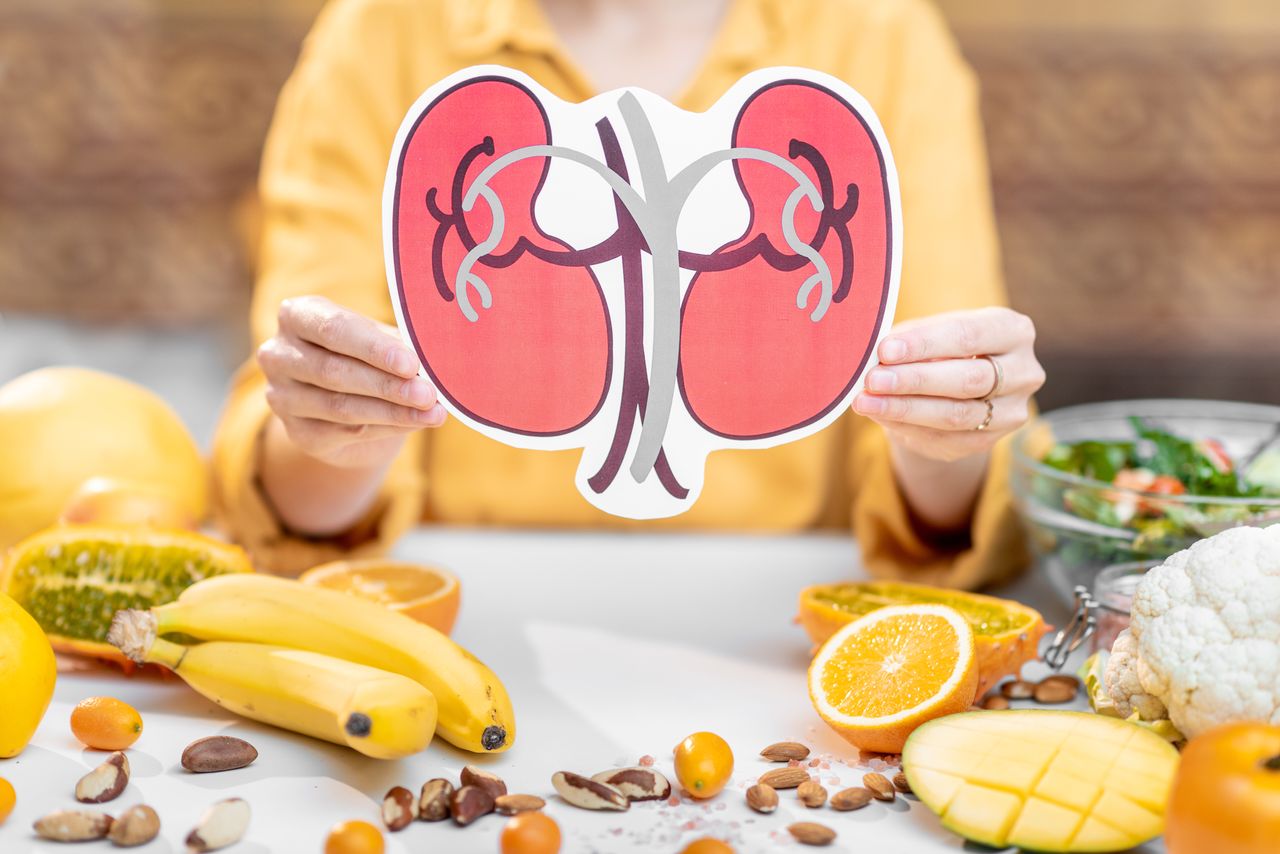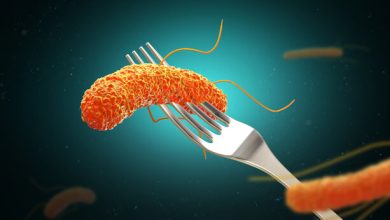What Foods are Good for People with Kidney Disease?

The kidneys are a pair of major organs located at the bottom of the rib cage on either spine. They serve a variety of important activities for the body’s health, including filtering waste items and excess fluid from the body and removing it through urine. A person suffering from renal illness may accumulate waste products in their blood. In that condition, a doctor may advise patients to adjust their diet for kidney disease to manage the illness and support kidney functions.
The kidneys are also responsible for controlling the body’s mineral balance and producing a hormone that encourages red blood cell production.
How Does Diet Affect Kidney Health?
The kidneys are connected with tiny blood vessels that help filter waste and excess water from your blood and remove it from your body.
- If you have CKD, your kidneys cannot filter blood as well as they should, causing excess waste to build up in your body.
- The two primary causes of kidney disease are diabetes and hypertension (high blood pressure).
- High blood sugar levels in uncontrolled diabetes and high blood pressure can damage the kidney’s blood arteries, rendering them unable to execute their job effectively.
- Untreated or uncontrolled diabetes and high blood pressure can major impact the development of CKD over time.
- A nutritious diet can help you prevent or manage illnesses like diabetes and high blood pressure by maintaining a healthy weight. In turn, a healthy diet & weight can benefit your kidney health.
You may need to limit some foods as part of a renal-friendly diet to help avoid future kidney damage.
What foods to have while having kidney issues?
The foods listed below may help you avoid and protect against kidney disease.
-
Apples
– Fresh, crisp apples are a delicious diet for kidney disease patients. They include pectin, a soluble fiber that aids in the reduction of cholesterol and blood glucose levels. The peel is also high in antioxidants and fiber. Apples also include B-6, C, and other vitamins and minerals. You can make your applesauce as well. Its acidic taste and chunky texture are far superior to store-bought quality.
-
Dark leafy greens –
Dark leafy greens, such as spinach, kale, and chard, are nutritional staples rich in vitamins, fiber, and minerals. Many also include antioxidants and other beneficial substances.
However, because these foods are rich in potassium, they may not be appropriate for persons on a strict diet or dialysis.
-
Avocados –
Avocados are frequently recognized for their numerous nutritional benefits, including heart-healthy fats, fiber, and antioxidants. While avocados are generally a healthy addition to any diet, persons with renal problems should avoid them. A patient should limit the intake as avocados have high potassium content. One medium avocado has a whopping 690 milligrams of potassium.
People with renal illness can still include avocado as a diet for kidney disease by lowering the portion size to one-fourth of avocado and, if necessary, lowering potassium.
-
Blueberries –
Blueberries are nutrient-dense and one of the finest sources of antioxidants you can consume, even if you have kidney disease. These delicious berries, in particular, contain antioxidants known as anthocyanins, which may protect against heart disease, some malignancies, cognitive decline, and diabetes.
They are also low in salt, phosphorus, and potassium, making them an excellent complement to a kidney-friendly diet.
-
Egg Whites –
Despite being extremely healthy, egg yolks are high in phosphorus. As a result, egg whites are a better option for people on a renal diet.
Egg whites are a high-quality, kidney-friendly protein source. Furthermore, they are an ideal alternative for dialysis patients who have increased protein demands but must limit phosphorus.
-
Bell peppers –
red, green, and yellow capsicums are useful to renal disease patients. They include phytochemicals and antioxidants, which aid in reducing inflammation in the body. Antioxidants aid in repair by lowering stress. These veggies are also low in potassium, sodium, and fluid, reducing the kidneys’ burden. Reduced kidney load aids in the healing and regeneration of nephrotic cells.
-
Garlic –
People with renal problems should reduce their sodium intake, including added salt. Garlic is a great salt substitute that adds flavor to recipes and provides nutritional advantages.
It includes sulfur compounds with anti-inflammatory qualities and is an excellent source of manganese, vitamin C, and vitamin B6.
-
Brown rice –
Brown rice, like whole-wheat bread, is a whole grain with a greater potassium and phosphorus content than white rice. You can add Brown rice to a renal diet, but only if the quantity is limited and balanced with other meals to avoid an excessive daily intake of potassium and phosphorus.
- Bananas
– These are well-known for having a high potassium content. While low in sodium, a medium banana has 422 mg of potassium.
If you have been told to reduce your potassium consumption, it may be tough to do so if you eat a banana every day. Unfortunately, many other tropical fruits have significant potassium levels added to a kidney disease patient’s diet.
-
Fatty Fish –
Because the body cannot produce omega-3 fatty acids, they are acquired via food. Salmon, tuna, and other cold-water, fatty fish are excellent natural sources of these beneficial fats. Mackerel, albacore tuna, herring, and sardines are all good sources of omega-3 fatty acids. O mega-3 fatty acids may drop fat blood levels and modestly lower blood pressure. Because high blood pressure is a risk factor for kidney disease, natural methods for lowering it may help protect the kidneys.
Conclusion – Taking care of yourself is the greatest approach to keeping your kidneys healthy. Eat healthy foods, exercise regularly, and avoid taking unnecessary medications. Most importantly, if you smoke, you should stop. People with diabetes or high blood pressure should also be screened regularly for renal disease or protein leaking in the urine. A balanced and healthy diet for kidney disease can also help you reduce kidney issues symptoms.
“Kidney illness is generally quiet in today’s world. However, if you notice signs such as swelling in the legs, exhaustion, peeing frequently or at night, bubbly-looking urine, or suffering from severe headaches, consult a nephrologist at SRV Hospital Goregaon. Early detection and treatment of kidney illness can help you avoid problems ranging from bone disease to premature death.



